|
It’s hard to believe we are already three months into the school year! My kids are now in grades 1, 3 and 5. All of them consistently have homework now, which can be quite challenging at times. My husband and I have an agreement: because my mother tongue is the same as the school language (French), we decided years ago that I would handle all of the paperwork that comes from school and help with homework and he would make lunches! It’s a win-win situation. French is his second language and he only speaks it with the kids in an informal context, therefore he doesn’t feel at ease handling the school correspondence and the homework. The challenge I face is two-fold. For one, it can sometimes take well over an hour for me to help all three kids with their homework and for two, homework is often quite challenging and frustrating for my daughter who has ADHD and a language impairment. Photo: A picture I took of all that came home one night as homework for my three kids! I find I have a very small window for success with my daughter. If we wait too long to start her homework, it becomes a battle and tears have been shed many times because of it. Some ADHD experts recommend letting kids take a 30-minute break after school and then starting homework right after that since your child is still able to learn and concentrate at that time. Although that would be the ideal time, as a working mother, I often get home closer to 5:00, which means that by then, we are getting supper ready. All too often homework gets started around 5:30-6:00, which is definitely not the best time for a child who is now off her medication, tired and just wants to play. In order to minimize frustrations, I’ve sought the advise of many, including her teacher, resource teacher and my colleagues who specialize in written language. My daughter has a real hard time with written language, so she now has assistive technology such as a laptop and a small voice recorder. Before resorting to technology, we tried several other tools. In this post, I will share with you the tools that we have used thus far. All of them have a purpose and so I keep them close by. One is actually a technique called the “Error free dictation”. The idea is that the child writes words to dictation without errors in order to ensure that what sticks in the child's memory is the correct spelling instead of the errors. In the next video, my daughter can flip back to a previous page to see the correct spelling of the words. You will notice that I am not actually giving each word out to dictation. We are just working on her short-term memory/copying skills. This next video shows the “error free dictation” in action. You will see how difficult it is for her to spell the words correctly. As she lets her pencil drop to the floor, she becomes quite frustrated and this technique is not working for her this time, but I still keep it in our bag of tools for future dictations. We also use the orthographic dictionary Eurêka, which allows a child to search for words according to how they sound, and not necessarily how they are spelled. This is a great tool and my son who is now in grade 5 uses it quite well. However, I discovered with my daughter that if numeracy is not your forte, this tool is not ideal! The first step involves going to the middle of the dictionary to find the sound you are looking for. Then, you must go to the corresponding page. My daughter has a difficult time knowing if page 72 comes before or after page 53, so this tool became a source of frustration rather than an aid. Here is a video of my son using this tool to spell the word pharaon, which has the same spelling and meaning in both French and English. Because phonetically, the word starts with the sound “f”, he finds the word under “f”s and not under “ph”. The Lexibook is another handy tool. For example, the word beaucoup in French, which means “many”, sounds like b-o-k-u. The “eau” letters combined make the sound “o” and the “p” at the end is silent. My daughter has learned how to spell this word many times before, but it hasn’t reached her long-term memory yet. When writing this word to dictation, it is pretty much guaranteed she will make mistakes. She spelled the word phonetically: boquou so Lexibook was able to generate the correct spelling for her. That’s not always the case. Sometimes, if the spelling is not phonetic, for example, if a soft “c” is spelled as a hard “c”, it might not recognize the word. In French, the letter “c” is soft in front of “e” and “i” but hard in front of “a”, “o” and “u”. She tried to write the word campagne but wrote cenpagne, making the “c” soft. Lexibook was not able to generate a word in this case… In these instances, my daughter has to go back to the word and troubleshoot. She came home from school with her own laptop in October to help with spelling. It was a bit of a learning curve but she was up to the challenge. She is still in the process of learning how to use all of its functions and primarily uses Microsoft Word and WordQ. The latter is a great tool that I have also purchased and downloaded onto our home iPad (it’s an app). She uses it very well for dictation. For every word she types, the program predicts which word the user is attempting to type and gives options. Once my daughter sees the word she is looking for, she selects it from a drop down menu and the word is read aloud for her to hear. She really likes this auditory feedback because it’s a way of confirming that she got the word right. The result: words are spelled without any errors. This means that she repeatedly sees the correct spelling instead of the spelling errors she used to make. Here is what it looks like on a PC. Photo: WordQ drop down menu used in Microsoft Word on a PC. This tool has helped tremendously with dictation. However, we’ve tried using it with other homework, such as answering questions relating to a paragraph she has read. This however, became a source of frustration. My daughter is able to find the answer in the paragraph, but then has a difficult time retaining that information in her short-term memory long enough to write it down using the computer. The problem is that if she writes it down by hand, most of it is spelled incorrectly. Copying the information found in the text down onto the next page is not as easy as one would think as you have seen in the “error free dictation” videos. In order to do so, you need to have great short-term memory! When we use her computer, which often slows her down since she is not all that familiar with the keyboard yet, she completely forgets not only what the answer was, but all too often, the question she was trying to find the answer to in the first place! The solution? We’ve been using a small voice recorder. She finds the answer, says it out loud in order to record it, then listens to her own voice to write down the answer. This is the voice recorder she uses: Photo: Sony Professional Digital 2GB MP3 Voice Recorder It is very user friendly and helps her tremendously. She is able to turn it on, record her voice and listen to her answer independently.
"So how can we ensure that she is able to use the computer more efficiently?" I asked. Assistive technology is often recommended for kids who have an identified learning difficulty. However, if the child cannot find the keys on the keyboard, it’s quite difficult to use. I’ve been through this with both of my kids. Teaching keyboarding skills is no longer part of the Ontario elementary curriculum. Kids are exposed to keyboarding skills, but not the way we were when we were in school. There are several programs out there that are designed to help kids learn the basics of keyboarding. In order for a child to be efficient on a computer and with WordQ, he or she needs to look at the screen and not at the keyboard. Easier said than done! Both my kids have used the program Typing Tournament from EdAlive and Tap’Touche (French keyboarding) or it’s English equivalent: Typing Pal. These two programs are designed for kids and offer several reinforcements throughout the lessons. It takes time, but it’s a great skill to have! My daughter actually enjoys practicing this skill. The school teacher, resource teacher, speech-language pathologist and I continuously look for ways to make writing and homework easier for my daughter. Since writing is a part of pretty much every subject in school, it’s important that we give her the tools she needs to succeed. School is still a positive environment for her, despite her difficulties. Her Individualized Education Plan (IEP) states that she also has access to a transcriber (a person that writes down her answers). This helps when the object of the task is to determine whether or not she understood what she read for example. So at school, she often has a transcriber for formal testing. I too will often transcribe her homework answers when appropriate along with a note to the teacher. I think that the key is to have access to several tools. For one, there are non-technological aids such as the “error free dictation” technique, the orthographic dictionaries and transcribing. For two, there are technological tools such as: the Lexibook, Word-Q on an iPad or a computer, a voice recorder, among others. These are made readily available to her and she chooses which one she wants to use. I find that when I give her the choice, homework time is much less of a battle! There are many things to keep in mind such as the time and place where homework is being done. It sometimes feels like rocket science but with a bit of patience and TLC, we manage to get through it, thanks to all the help we get from teachers, resource teachers, tutors and speech-language pathologists! I hope that you found this post helpful. If you struggle with homework with your child and/or if your child has a hard time spelling and you have suggestions, please feel free to share by leaving a comment below or by emailing me directly. Thank you to my colleagues Dr Michèle Minor-Corriveau, SLP and Dr Pascal Lefebvre, SLP for all your advice! I've written a lot about my daughter in past posts but I failed to mention that my son has a mild learning disorder with a mild dysfunction in reading and writing skills. He was diagnosed by a psychologist when he was in grade 3 at the age of 8. He is now in grade 5 and has come such a long way, thanks to the help of his teachers, support staff and the advice from my dear colleague Dr. Michèle Minor-Corriveau. Written language isn't my area of expertise and to be honest, we didn't receive a lot of training in this domain when I was completing my master's degree in Speech and language pathology. I am so grateful to have an expert in the field who is willing to work with my son and provide consultations to the school staff. I asked her to write a post for my blog so that she could share with other parents, teachers, caregivers and speech and language pathologists exactly what is a written language impairment and how we can go about helping those who struggle with writing. You can read more about Dr. Minor-Corriveau at the end of this post. Here is her post... If we were dropped off on a deserted island void of alphabet, written words, signs or messages, we would never learn to write, nor would have the need to. Social beings that we are, we would, however inherently develop an oral language common to the natives found on this deserted island in order to communicate needs, wants and desires. Written langage, however, is a code that must be taught explicitly : it is not acquired simply by interacting with other social beings. So how do we decide which skill to teach first ? The answer to this question is not a simple one, nor is it clear cut. The answer to this question far exceeds the limits of this post, but it should be well understood that learning written language is not linear. One does not master the art of spelling and writing accurately without explicit instruction, or by summing up different skills to make a whole. In this case, the whole is greater than the sum of its parts, and given the diversity of children’s abilities grouped together almost randomly in any classroom, a one size fits all approach is rarely effective. Who decided that age was the most common characteristic that children share? That is, however, the most common factor considered when grouping them together in an effort to teach them new skills. That too is a discussion for another post. Suffice it to say that, in French, there is very little to guide teachers in the manner in which to teach spelling abilities, but there is a recommended hierarchy that, when followed across a continuum, would help children efficiently master the basics. And although mastery of one competency can lead to mastery in another, this is not a guarantee of success and some insight is needed to choose which skill should be targeted next. I suggest reading up on Pothier to gain a better understanding of this concept. Of the utmost importance when teaching children to spell and write, is knowing what type of spelling errors they are making. So what are the different types of spelling errors? Let’s be clear: children, at one time or another, exhibit every type of error. It is part of a natural learning curve. Even as adults who consider themselves to have mastered the written code, these errors often creep into our lives. Knowing how to identify the type of error you are trying to avoid or remediate can help to troubleshoot and provide strategies that will allow your child to increase written language proficiency. Common error types include, but are not limited to: syntactic, lexical and phonetic/phonological errors. When a phonetic/phonological error is sounded out, the word is not phonetically identical to the target word. For example, when the word ‘carrot’ is spelled ‘garrot’, that would be a phonetic error. If the word ‘carrot’ was spelled ‘carott’, then that would be classified as a lexical error. Syntactic errors can only be analyzed within the context of a sentence, since they can only occur when agreement between words or clauses is inaccurate. So what can be done to help save our children from disastrous spelling? Here are a few ideas that might help to increase the likelihood of error-free spelling. Know your child’s error type : Knowing the type of error that has been made can help provide a strategy to wipe out the error next time. Phonetic/phonological errors CAN be eliminated when you ask your child to sound out the word, but this strategy isn’t sufficient in and of itself since children will often sound out the word they originally wanted to write. A high level of insight is required to use this strategy as a means of correcting mistakes. This type of error should be one of the first types to disappear, once children’s phonological awareness skills are mastered. Lexical errors can be corrected using a dictionnary or a word prediction software such as WordQ or Medialexie. For those who are still spelling phonetically, there is an answer : using a phonetic dictionnary such as Lexibook or Franklin. These technological devices and software serve more functions than those that are listed here. Syntactic errors can only be eliminated by learning the ropes. And by ropes, I mean syntactic competencies. A word of caution: students will not master all of these skills at once, so a high tolerance for errors related to the skills that have not been taught is required to maximise student performance and interest in writing. Invest in a Sharpie : it’s an easy, fast and cost-effective way to block out mistakes. If a child makes a mistake, use the sharpie to block it out, so that he/she never sees it again. Write the word correctly above or below the blocked out word, and underline the area that should be focussed on. For example, if a child writes ‘carott’, you block it out and write ‘carrot’. That way the memory will focus on the underlined parts, and the odds of retaining the correct spelling has increased. Think of it this way : if a child must look at his error, in order to decipher and write the word correctly, he/she is exposed to the error more than the correct spelling, which increases the likelihood of making the same mistake over and over again (see picture at end of post). So here’s to teachers and parents everywhere! Let’s band together and help our children use all of the resources that are readily available: dictionaries (whether they’re paper-bound or virtual) and encourage them to embrace the difficulties of written language as part of the process. We need to change children’s perspectives: everyone makes spelling mistakes. It is only when we are aware of them and the tools that are available to help minimize them, that the battle can be conquered. Corrections and constructive feedback are not equivalent to criticism. Each child should be encouraged to master skills at his or her pace, and the only competition should be with oneself. Stay tuned for upcoming posts from Dr. Minor-Corriveau in which you will read about: · Can a student who is still learning a skill actually make a mistake? · Is access to a spellcheck function more of a help or a hindrance where spelling ability is concerned? · What are the challenges that bilingual language learners face with respect to written language? Here is an example of an easy way to block out mistakes: by Michèle Minor-Corriveau, PhD, 2015. 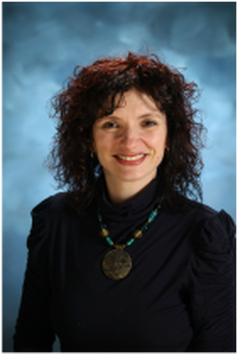 Dr. Minor-Corriveau received her Master's Degree in Speech-Language Pathology in 1998 from Laurentian University. She is a registered member of the College of Audiologists and Speech-Language Pathologists of Ontario (CASLPO). Since 1998, she has worked with school-aged children presenting with speech and language difficulties and disorders. In 2012 she received her PhD in the area of Human Studies, an interdisciplinary doctoral programme focusing on integrating professionals from various backgrounds around a common complex problem. Her research interests center around, but are not limited to, creating standardized procedures for assessment and intervention of speech and language disorders targeting linguistic minorities, namely, the franco-ontarian population. Since 2008, Michèle has been providing lectures and teaches courses as an Associate Professor at Laurentian University in Speech and language pathology program. She is a strong advocate for francophones and francophiles alike, and is always honoured to help promote the profession of Speech-Language Pathology and its relevance in the bilingual setting. |
|

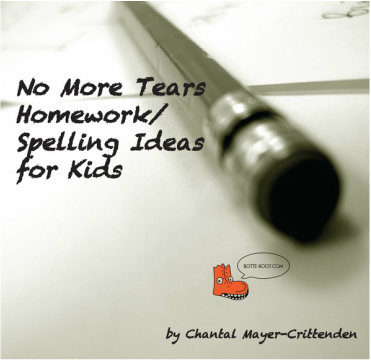
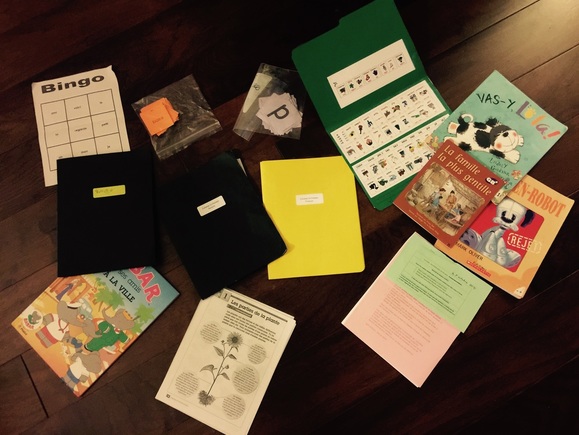
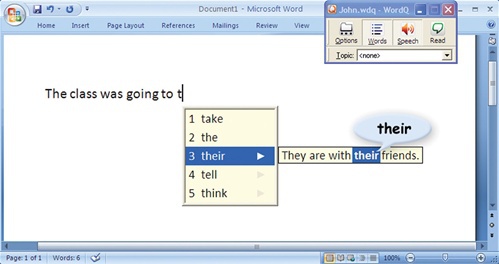
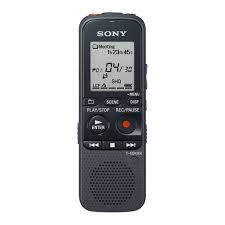
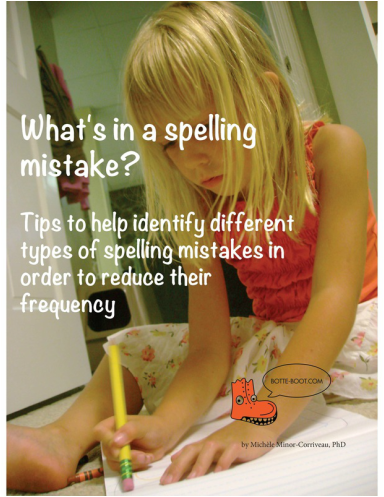
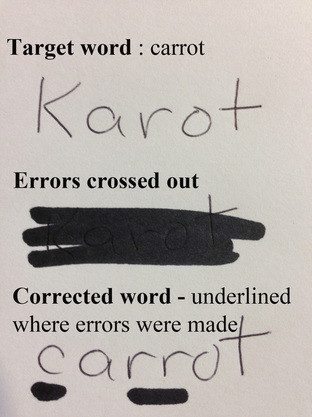
 RSS Feed
RSS Feed